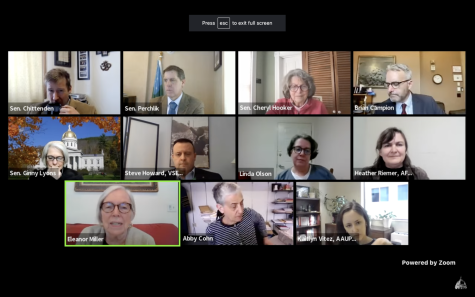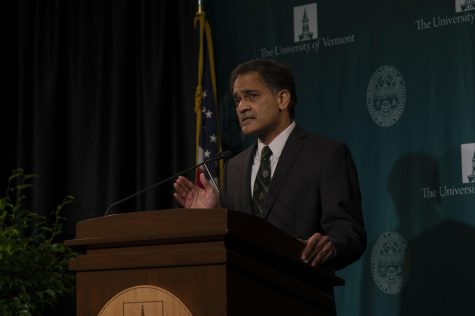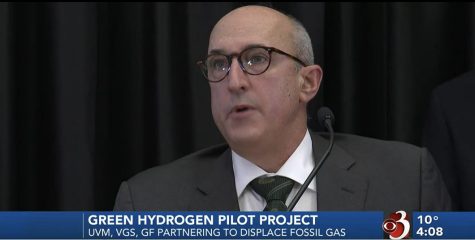New bill will lower Vermont’s carbon footprint
The Vermont House of Representatives voted 121-24 to pass a bill designed to lower residents’ carbon footprint.
Passed March 11, the Renewable Energy Standard and Energy Transformation bill, known as RESET, requires utilities to sell a certain percentage of their electricity as renewable, according to a March 10 VTDigger article.
It is designed to address the problem presented under the Sustainably Priced Energy Development Program making it difficult for companies to sell renewable energy credits across regional markets, the article stated.
The bill also tackles the issue of long-term fossil fuel consumption while promoting local renewable energy generation, according to the article.
First-year environmental science major and Vermont resident Maria Cayia expressed her concern toward the bill.
“While I completely support renewable energy, as a local Vermonter I know a good number of residents who would be opposed to destroying the Green Mountain landscape,” Cayia said.
“Although we are a progressive state, many Vermonters would hate to see their backyard covered in solar panels and wind turbines.”
In addition to the economic aspect of creating more renewable energy, there is also a more human aspect to understand.
Burlington native and environmental anthropology professor Luis Vivanco said, “Generally speaking renewable energy is a good thing. However, it depends how we define it. For example, hydropower, using regions in Quebec a have the potential to displace residents in proximity to construction.”
The bill provides the freedom for state regulators to determine how utilities meet the obligation. A percentage must come from wind and solar farms in Vermont.
Other alternatives to cutting down fossil fuel consumption entail loans for weatherization and heat pump leases offered by the utility companies, the article stated.
Legislators and constituents said that passing the bill would increase utility rates and prevent Vermonters from fueling their homes. Geography and environmental studies professor Ingrid Nelson also shared her opinion about the bill.
“When it comes to renewable energy, it [is] difficult to determine what may be good or bad,” Nelson said. “While I encourage renewables, seeing what is most economically and environmentally feasible completely depends on the type of renewable being incentivized.”
RESET is now in the hands of the Vermont Senate for vote.











